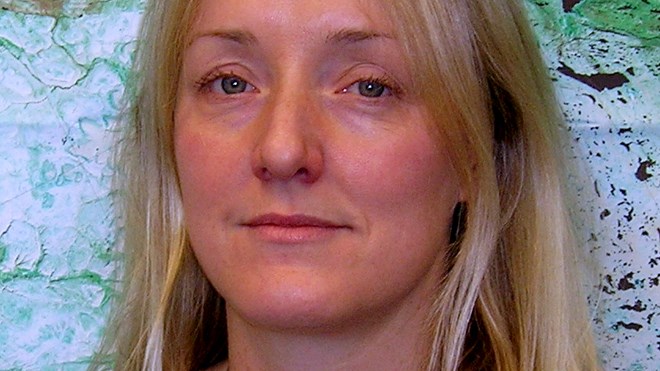SUDBURY - Groundbreaking research by an international team of scientists – including Dr. Elizabeth Turner of Laurentian University – has led to the discovery of the world's oldest fungi, which dates back as far as a billion years ago.
That's about half a billion years older than the previously discovered fungi – and it sheds some light on a largely blank era of pre-history when life was first evolving. The view many people have is that bacteria began as a sort of soup in the world's oceans billions of years ago, and later plants and animals emerged.
Turner said Wednesday fossils such as bones, shells and teeth only begin appearing about 540 million years ago, when several complex lifeforms suddenly appeared on the scene. But that leaves about four billion years of Earth history we know very little about.
“That visible fossil record is the last one-tenth of the Earth's history,” she said. “(But) there had to have been an interval of hidden evolution prior to that, during which the real action took place.”
Scientists believe life began as bacteria, which contain very basic cell structures known as prokaryotes — basically bags of chemistry. Fungi is important, Turner said, because it's made up of eukaryotes (still bags of chemistry, but containing, for instance, a nucleus), a more complex and organized cell structure that evolved later and is also found in plants and animals.
“So (eukaryotes) have nuclei and have mitochondria and they have chloroplasts – stuff you learned about in high school,” she said.
If eukaryotes existed a billion years ago, it's possible plants and animals existed at the same time in some form. It's one step forward in discovering the missing links in evolution between the beginning of life as one-celled bacteria, and the emergence of complex multi-cellular organisms, like people.
“Finding a very diverse ecosystem that included fungi a billion years ago says ecosystems and Earth surface biology was a whole lot more complicated at that time than we thought up till now,” she said.
Learning about that complex biology is a huge challenge, Turner said, since early life forms were small pieces of organic matter that left little or no trace of their existence.
“Organic matter generally doesn't get preserved in the rock record, but under the right circumstances, it can be preserved,” she said.
Those circumstances exist in the Canadian Arctic, and Turner and an international team of scientists brought their search to the the Grassy Bay Formation on Victoria Island, where the fungi, dubbed Ourasphaira giraldae, was discovered among the samples they collected on expeditions beginning in 2014.
Unlike other parts of the planet, rocks in the Arctic formed without exposure to high temperatures, giving scientists their best shot at finding ancient fungi. The sample they studied showed signs of chitin, a compound found in fungal cell walls. Paleobiologist Corentin Loron of the University of Liège in Belgium, spotted the fossil specimen last June, and is the lead author of the research published in the journal Nature.
Turner has worked in the field for 30 years, and plans more research trips to the Northwest Territories to continue her work in trying to solve the mysteries of how life evolved. It's not unlike scientists who search for the missing links in how humans evolved from apes – but Turner's research is more fundamental, seeking to understand how we went from bacterial soup to plants and animals.
“Our knowledge of the really fundamental parts of biological evolution – when things really started happening, when all the major lineages emerged and how they diverged from one another and when and why and how – those are the big questions we're going after.”
- Sudbury.com
